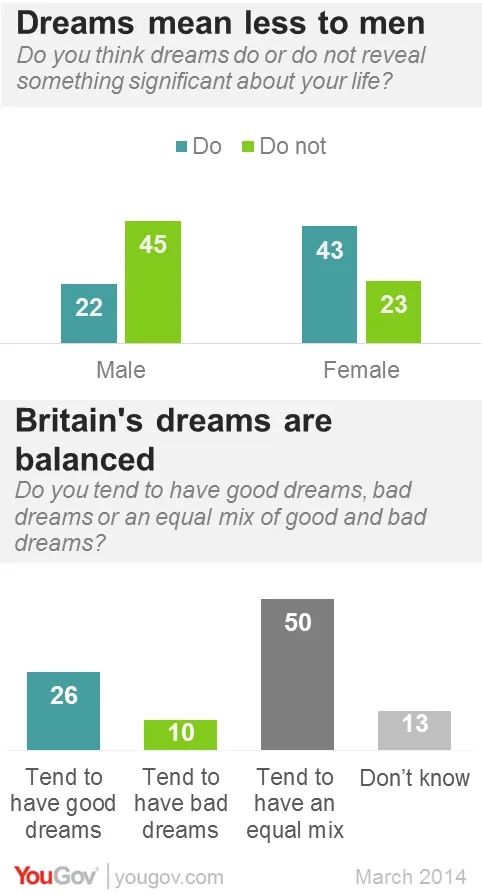Twice as many women as men think their dreams reveal something significant about their lives – and on balance Britain has more good dreams than bad
We spend 26 years of our lives asleep, on average. We dream every time we sleep, and in Britain most of us (57%) remember our dreams at least once a week, according to new YouGov research.
For many of our waking hours then, we think about our dreams. And the question inevitably arises: what, if anything, do they mean?

33% say dreams reveal something significant about their lives. And women are more likely (43%) than men (22%) to think that dreams have meaning.
34% say they do not reveal anything significant about their lives; 33% are unsure.
People in Britain have a fairly balanced dream-life, with half (50%) saying their dreams tend to be an equal mix of good and bad. Happily, only 10% say they tend to have bad dreams, while 26% say their dreams tend to be good.
And the research shows that young people remember their dreams far more frequently than old people.
While 71% of 18-24 year olds remember their dreams at least once a week, only 44% of those over 60 recall them as frequently. In fact, over 60s are more likely to only remember their dreams once a month (13%), several times a year (24%) or not at all (11%).
Scientists now believe they can ‘read’ dreams. By monitoring volunteers’ brains, and asking them about the content of their dreams, they can tell which brain patterns indicate which sorts of dreams. This doesn’t answer the more philosophical question of what our dreams actually mean, however, which seems to leave science quite out of its depth.






